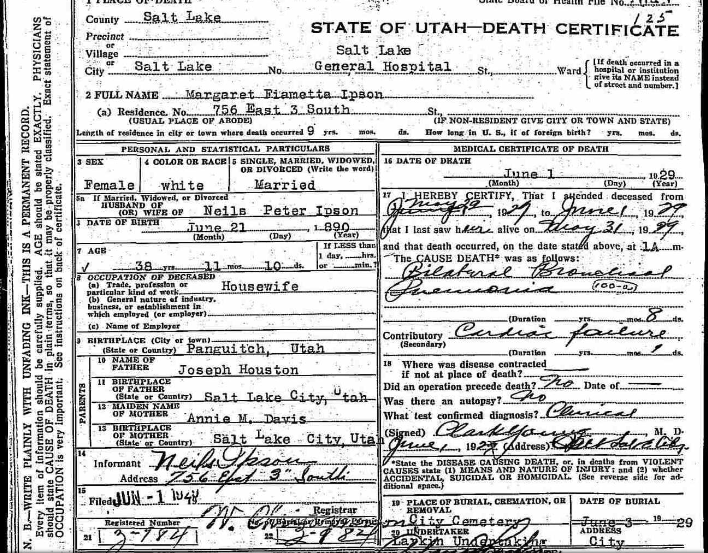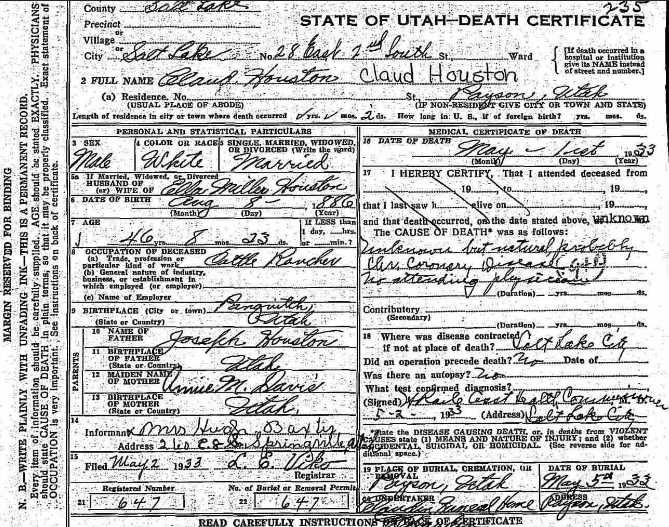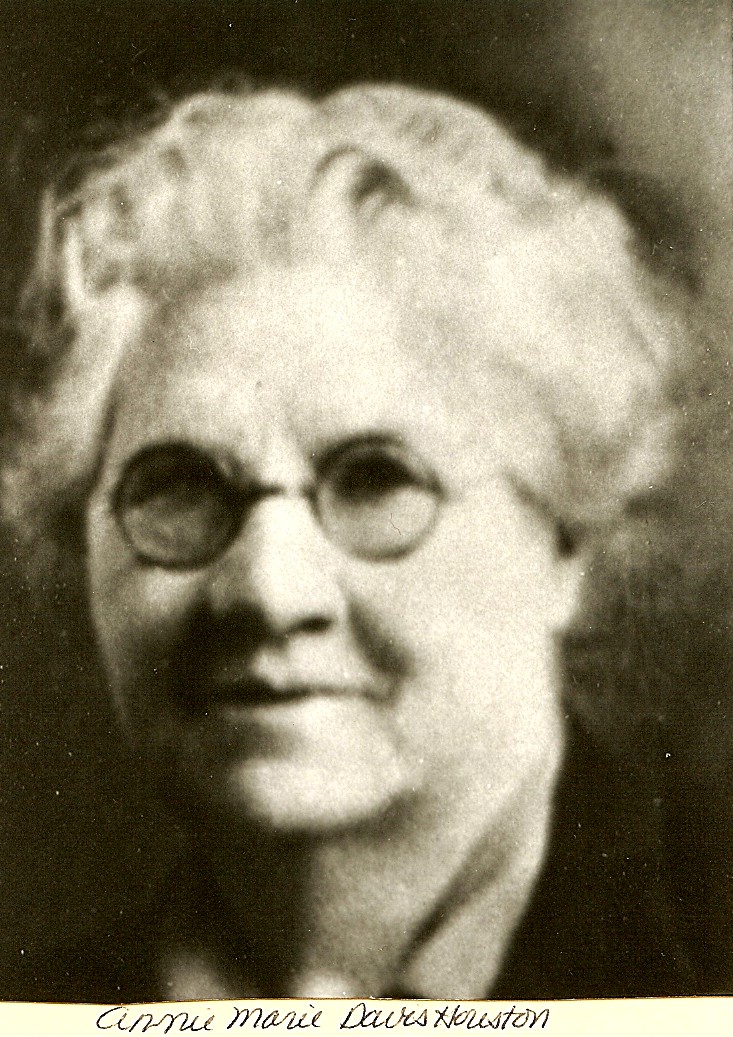
My great grandmother was the meanest woman ever.
That’s quite a claim, right?
The story goes like this. Years ago, as my Mom asked people around town what they remembered about her Grandma Houston, Annie Maria Davis Houston, their responses were something like this:
“She had a beautiful singing voice. She was the meanest woman ever.”
“Sister Houston made beautiful rag rugs. Not a nice woman.”
“Annie made amazing cheese. Meanest woman ever.”
In her brief history of her mother, Gwen Houston Baxter, described Annie as:
“She was a large woman with a very proud carriage of a dominant and independent nature. She was an outspoken woman, nothing deceptive about her. She was a strong disciplinarian.”
Her daughter-in-law, Della Prince Houston, recalled that Annie “didn’t have many close friends because people were afraid of her, [and] didn’t feel at ease in her presence. She was a sharp-spoken woman at times and was the disciplinarian of the family. Her sons all left home as soon as they were old enough to be on their own.”
When my Grandpa Steiner was 3 or 4 years old, he and his brother were messing around in the snow, looking for long nails that they could use as “diggers” to propel their sleighs. They fought over a nail. Each time Roll would lay the nail down to chop the head off with a hatchet, Steiner would grab for it. Well, someone lost a finger…and that someone was Steiner! Roll promised Steiner the diggers if he wouldn’t tell Mom. When they couldn’t stop the bleeding they went in to face Annie’s wrath.
In later life, Annie sat watching Cecil Prince Reid (who claimed she weighed less than 100 lb at the time) shake out Annie’s rugs. Annie chimed in to let Cecil know that, “She always thought of little people like runt pigs, no good for anything, but it looks like you do alright.”
How about that for outspoken bluntness?

Annie was “a woman of distinction”. “Her wavy white hair and dignified bearing were outstanding.” She was renowned for her fine clothing and both histories of her life report that her wedding dress was made of 18 yards of fabric.
Annie was proud of her home and furnishings. She had an elegant brick home, curtains from France, and beautiful furniture.

298 South 100 West, Panguitch
Annie’s beginnings were far from grand, however.
Annie was born on September 8, 1860, in Salt Lake City, Utah. Her parents Joseph Cadwallader Davis (or Davies) and Maria Williams were converts to the Mormon faith and had both immigrated from Wales.

(Annie is top left)
Annie was the eldest of 22 children born to her father and his two wives. Seven of those children would not survive to adulthood.
The family moved from Salt Lake City to Panaca (a tiny mining town that is now in Nevada) and later when Annie was a teenager to Panguitch, Utah. When the Davis family first moved to Panaca they lived in a potato cellar and Annie’s father attempted to eke out a living by frieghting and making charcoal for the mines and from farming.
One of Annie’s chores was to peddle vegetables in town. Annie, too ashamed to peddle, would hide while her sister, Elizabeth would sell. After helping with housework, Annie would go into the fields with her father to strip sugar cane, pick potatoes, and help with hay and grain harvests.
As a teenager, Annie worked in homes and even taught in a private school for a short time. She was eager to get an education. With the encouragement of her father, Annie married an older man as his plural wife. Reportedly, Mr. Crosby promised to send Annie to school. In later life, Annie told her daughter-in-law, Mr. Crosby accosted Annie as she was returning the cows from the field for milking, and Annie beat him off with a stick. Annie was reportedly treated like a hired hand and never obtained the education she was promised. Annie obtained an annulment after just 6 months of marriage. All before her 18th birthday.
To find the rest of Annie’s story, read here.















